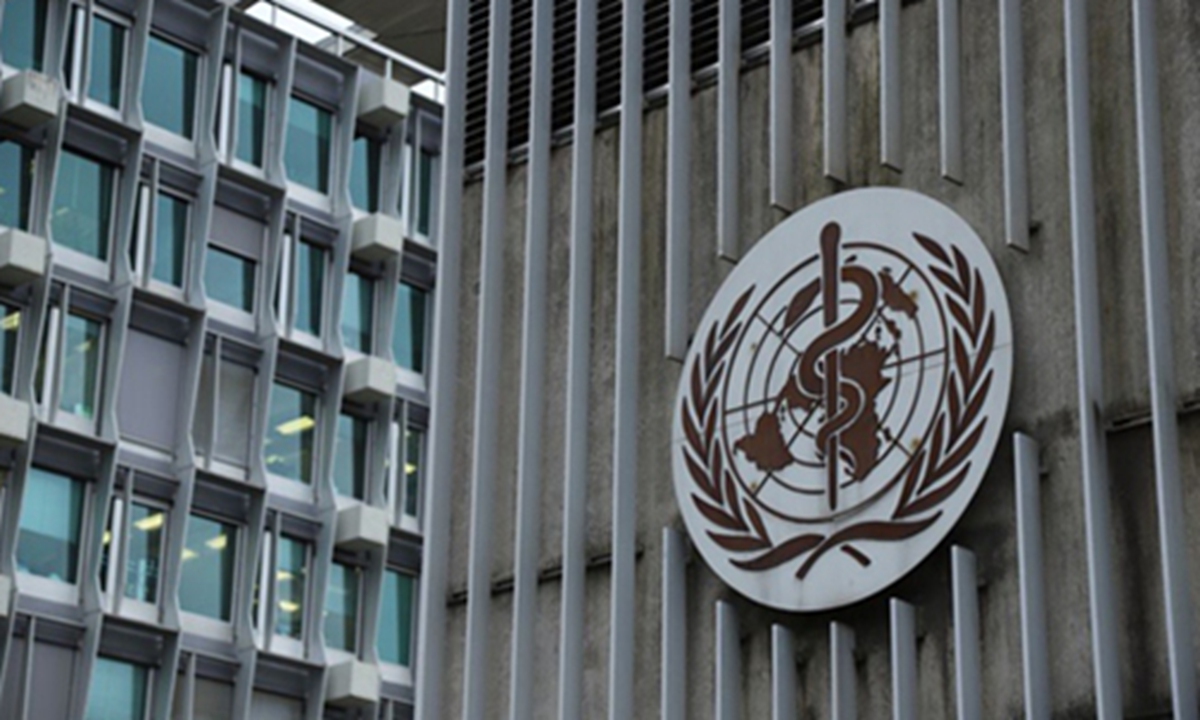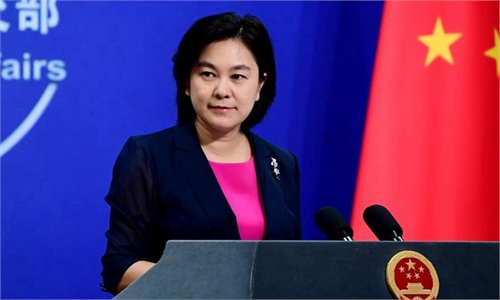The one-China principle is a door for Taiwan, while "Taiwan independence" is a dead-end alley: Global Times editorial

Photo taken on January 30, 2020 shows the headquarters of the World Health Organization in Geneva, Switzerland. Photo: Xinhua
The Taiwan authorities had yet to receive an invitation to the 74th annual meeting of the World Health Assembly (WHA) as of Monday, the deadline for registration. This means the island of Taiwan has basically lost the possibility of attending the virtual conference of the WHA. Taiwan authorities' attempt to return to WHA has once again experienced a severe setback.
Out of sinister purposes of using the Taiwan question to pressure the Chinese mainland, the US and its allies in a joint communiqué after the G7 foreign ministers' meeting last week expressed, for the first time, support for Taiwan's "meaningful participation" in the World Health Organization (WHO) forums and the WHA.
US Secretary of State Antony Blinken specifically called for WHO Director-General Tedros Adhanom Ghebreyesus to invite the island to participate in the WHA conference. In view of such an unprecedented scene, the Taiwan authorities became ecstatic and hyped up the hope for the island to return to the WHA.
However, the WHO is a body of the United Nations. It doesn't belong to the US, nor to the G7. Agencies under the UN must abide by the one-China principle. This is the bottom line. As the Taiwan authorities headed by then regional leader Ma Ying-jeou acknowledged the 1992 Consensus and the one-China principle, Taiwan at that time was able to participate in the WHA in the name of "Chinese Taipei" and as an observer with the consent of the Chinese government. After the Democratic Progressive Party (DPP) in Taiwan assumed office, it abandoned the 1992 Consensus and jeopardized the one-China principle. In such context, conditions for the Taiwan authorities to attend the WHA meeting certainly no longer exist.
Taiwan's latest setback demonstrates several important facts.
First, the island of Taiwan is not a country. It amuses itself by pretending to be a "sovereign and independent state," but UN agencies don't accept it at all. It must gain approval from the Chinese mainland in order to formerly participate in international organizations. It's Beijing, rather than Washington, that has the final say over how much room the island will have for its international participation.
Second, the one-China principle is one of the cornerstones for modern international relations. This is a universal international consensus that cannot be easily shaken. Even if the US and its Western allies want to challenge the principle, they cannot easily succeed as they have wished. In the case of a Beijing objection, if Taiwan authorities want to participate in the WHA meeting, some WHO member states need to submit a formal proposal that will be voted on by all members. The Western countries that the US is able to mobilize and all Taiwan "allies" together represent only a few dozen votes, while WHO has more than 190 members.
Third, in the past few years, the US didn't pay much attention to make an issue of Taiwan returning to the WHO. It offered verbal support for Taiwan last year, and this year roped in G7 to cause uproar. The US' change was obviously due to its new China policy. Washington isn't really trying to help Taiwan at all. It is unwilling to pay a high price for the island. What it wants is to manipulate this issue at little cost to put pressure on the Chinese mainland. The island of Taiwan is only a chess piece that Washington can move willfully on its strategic chessboard.
Fourth, the DPP authorities desperately hope to be recognized internationally and try to steal the limelight. But during their five years in office, the number of Taiwan's "diplomatic allies" has reduced to 15 from 22. They didn't succeed in joining any of sovereign state organizations that they long for. They have gotten only some vague support of no substance from the US, and have been made use of by a small number of Western parliaments and lawmakers in their public stunts. Is the DPP moving closer to or farther away from what it wants most? Do they dare make this clear to the public within the island? What's more, because of the DPP actions that go against the historical trend, the Taiwan Straits have witnessed record-breaking military tensions in recent years.
As a matter of fact, Taiwan authorities are getting closer and closer to the edge of the cliff. They have long acted with unbridled discipline, but now they have begun to feel scared looking at the endless cliff. They have had a sense of crisis that they may be smashed to pieces if they continue to move forward recklessly.
If Taiwan authorities want to participate more in international affairs, they must follow the right path to accept the one-China principle and the fact that the island of Taiwan is an inalienable part of the Chinese territory. They must abandon extreme secessionist policies, and seek solutions to problems through Beijing instead of Washington. The one-China principle is the door for Taiwan. But "Taiwan independence" is a dead-end alley.

